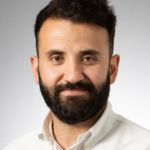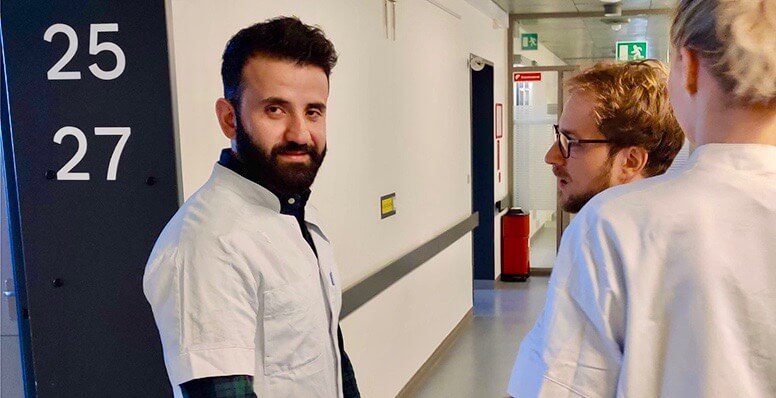
Clinical Immersion – the importance of field work
I’m Roeen Roashan. I come from a business background, with an MBA from 2012. After working as a health technology analyst for more than six years, I decided to start my own health-tech company in 2018, focusing on oral health. A year in, I decided to pivot into geriatric oral care and hospital oral care, but discovered that an entirely different innovation model is needed. As a result it led to me applying for the BioMedical Design program in Copenhagen.
To get inside the clinic
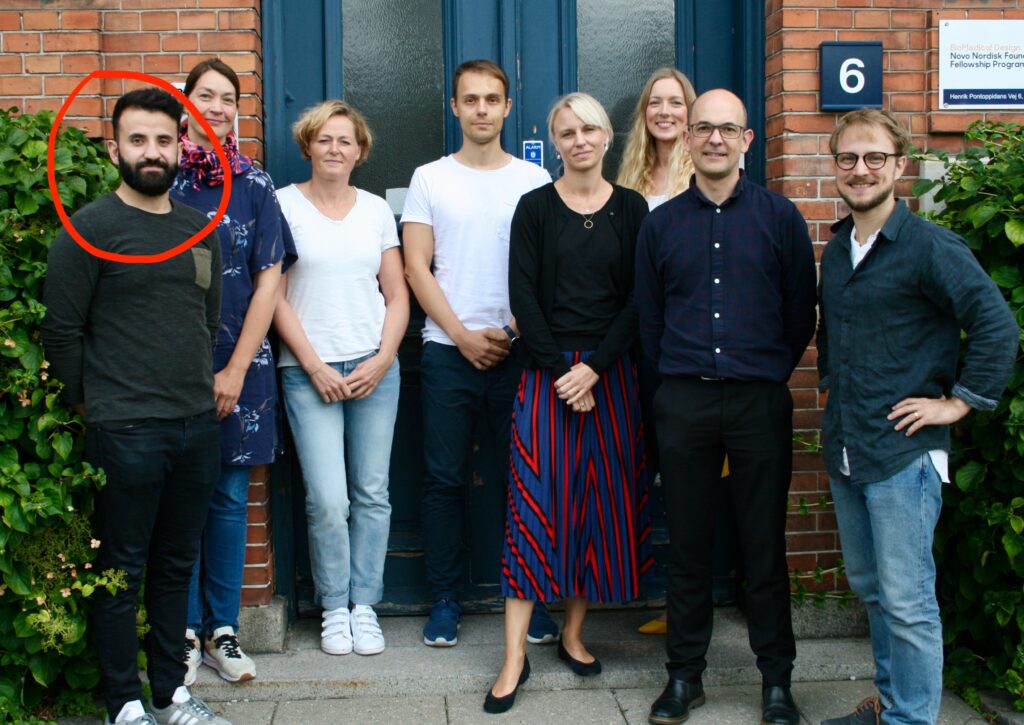
My overarching goal with the program is to adopt a solid methodology for innovating in healthcare – a model that significantly increases the likelihood of actually reaching a point of impact to patients, healthcare providers and other key stakeholders in healthcare. An exhaustive understanding of healthcare’s complex structures is a prerequisite for better execution, and for this you need to ‘get out of the building’, which is often difficult to do in healthcare. Because of the unique insider perspective into clinical practices that the Biomedical Design program offers, I have already found my participation to be extremely valuable, and we are only two months into the program.
Learning the fundamentals of our clinical field
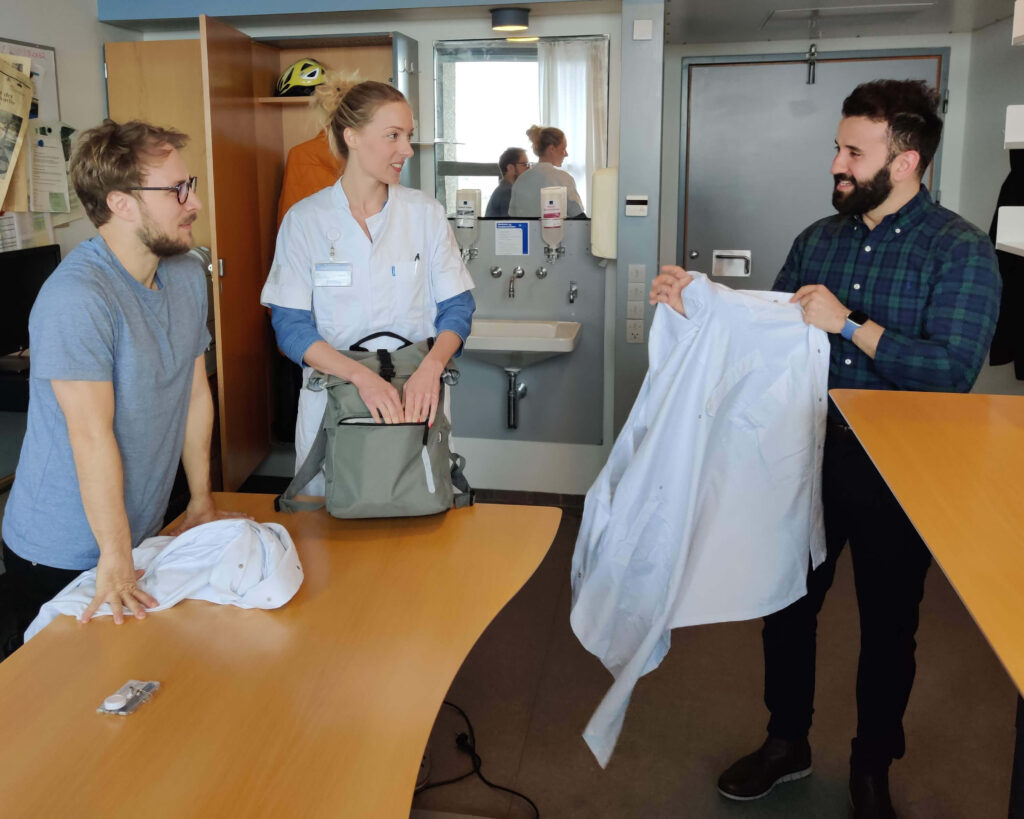
The fellowship started with a four-week boot camp that helped me gain a foundational knowledge of medicine, in the field that my team and I will be innovating within, namely nephrology. Part of the boot camp has been to receive lectures by some of the most specialized doctors within their area of expertise, and I have found this part to be highly valuable. Coming from a business background, I took the role of ‘not knowing anything’, and therefore asking many questions without hesitation.
Field work kills assumptions
There is a stark contrast to including field work or observational studies in the development of a new product or solution, and not including such input. You are prone to making many naive assumptions when you have not done field work. This does not mean that success is contingent upon doing field work, but I certainly believe it increases the likelihood of it. To me, field work is about discovering the fundamental truth, and as more truth is unveiled, it cannot be ignored. That is perhaps the ultimate beauty of going through such process. Here’s a bit of honesty – I did very little field work when starting my own company, but it will undoubtedly play a key role for future products.
Observing at the hospital
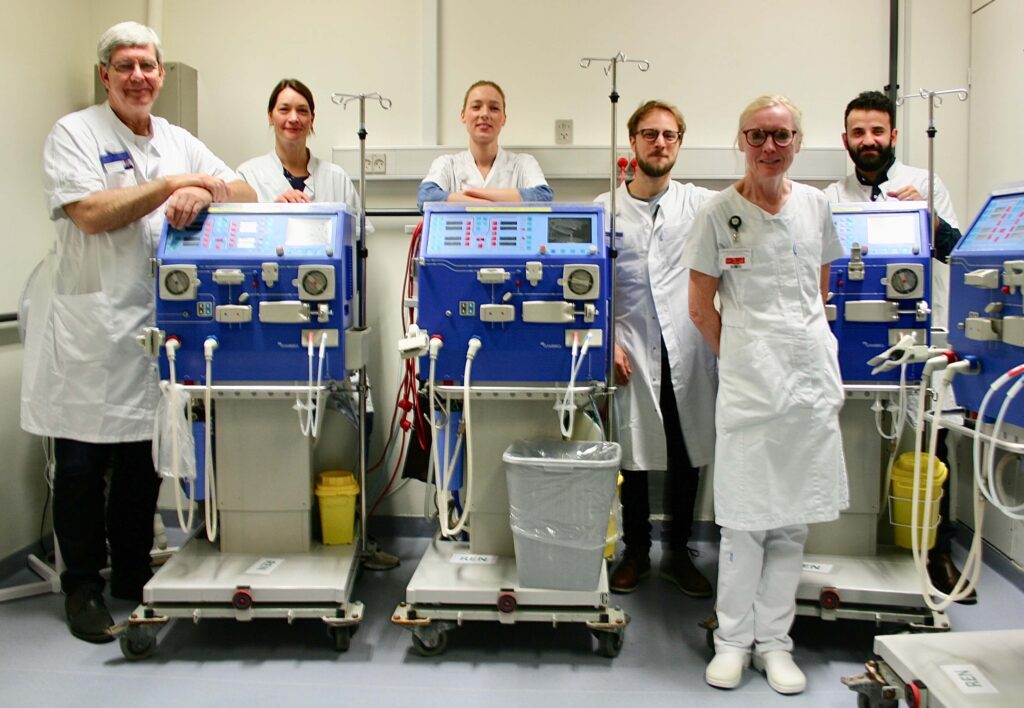
Although I have worked in the field of health technology, I have not spent much time inside hospitals. For our team it was quite unique to really get around all different functions at the Department of Nephrology, Rigshospitalet in Copenhagen. Each team member rotated around the different wards and treatment centers, for the collection of data, which were then reviewed on a daily basis by the entire team.
Our main challenge was to disseminate all of our individual observations to one another, but as we progressed in the clinical immersion phase, we got better at filtering out our non-essentials.
From 30 to four needs
At this point, we have narrowed down a list of 30 qualified commercial needs down to four key needs that we will be validating in the coming months. That implies having to turn away from 26 needs that could have potentially brought some level of improvement to patients or doctors. That being said, each team member was aligned as to which four needs we should proceed with, and picking these was therefore a simple process.
Now validating our key needs
Our four key needs are some of the most pressing issues in nephrology today – at least our observations say so. We are embarking on a critical validation process in the coming weeks, and it will be clearer whether or not the team’s current direction is good or not. I was happy to see that the team members were more or less aligned with one another in choosing top needs.
We are an ambitious team, and the combination of each team member’s past experience is really our differentiator. As we approach the creative skills phase, I would really like the interdisciplinary element of our team to flourish, and my gut feeling says it will.
